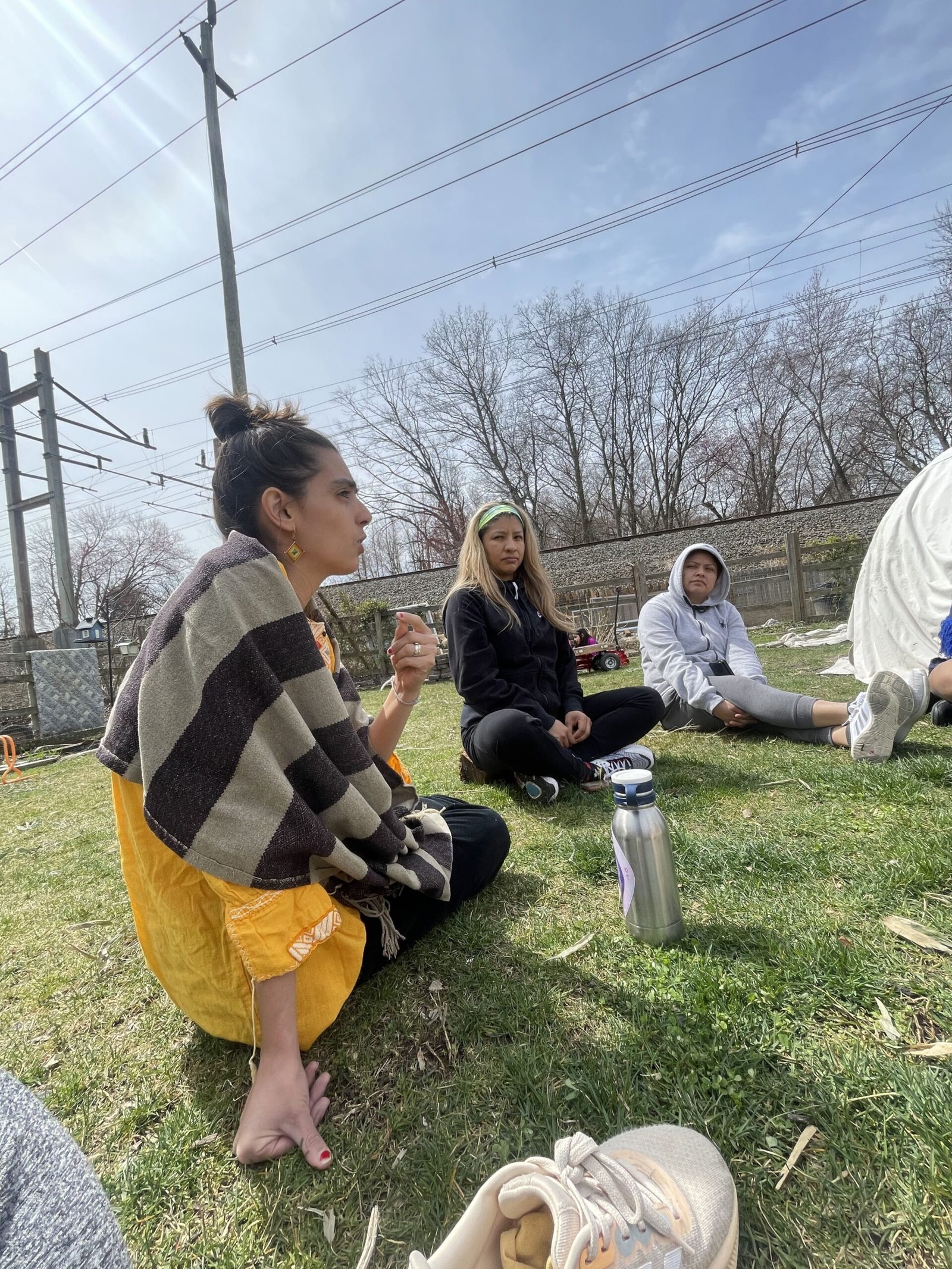
Look to the power of Restorative Justice Circles, an ancient yet timeless tool for weaving communities together, harnessing collective wisdom, resolving conflicts, and fostering healing. Experience the potential of this ancestral technology as it helps your community to thrive, reconcile, and build stronger, more cohesive bonds.
We intimately understand the profound cultural shifts and challenges when navigating new systems. Rejecting the notion of assimilation as the only path to acceptance, we stand firm in our belief that our culture is our strength. La cultura cura. Together, let’s reclaim the rich ancestral wisdom embedded within our communities and ourselves.


We can help your institution thrive in serving BIPOC communities with our specialized cultural consulting services. We provide expert guidance and tailored frameworks to ensure your organization can authentically engage and support diverse audiences. With our assistance, you’ll enhance cultural relevance, foster inclusivity, and cultivate meaningful connections with the communities you serve.
Embark on a transformative journey with our diverse array of workshops, each meticulously crafted to empower and inspire. From delving into the intricacies of environmental justice and healing justice to exploring the vital concepts of food sovereignty and birth work, our offerings are as expansive as they are impactful. Led by passionate community teachers with a wealth of knowledge and expertise, our workshops serve as catalysts for growth, understanding, and collective action. Join us and harness the breadth of wisdom and experience within our community to drive positive change and create a more just, equitable world.

Cultural recovery refers to the processes and efforts undertaken by communities, particularly Indigenous communities, to restore, revitalize, and sustain their cultural practices, languages, traditions, and identities that have been disrupted or eroded due to colonization, assimilation policies, or other forms of cultural oppression. This can include initiatives in language revitalization, traditional arts, ceremonies, and storytelling, aiming to strengthen community ties and foster a sense of belonging and pride.
Indigenous resiliency practices encompass the ways in which Indigenous peoples adapt, survive, and thrive despite historical and ongoing challenges. These practices draw on traditional knowledge and community strengths, emphasizing holistic well-being, connection to land, and the importance of cultural heritage. Resiliency can manifest in various forms, such as community organizing, intergenerational knowledge sharing, and engaging in environmental stewardship, all aimed at ensuring the survival and flourishing of Indigenous cultures in a contemporary context.
Together, cultural recovery and resiliency practices are vital for healing, empowerment, and the continuation of Indigenous ways of life. They help communities reclaim their narratives and create a stronger foundation for future generations.
Peacemaking Circles are an integral part of many Indigenous traditions, offering a way to speak from the heart, listen deeply, and honor each voice. In these circles, we come together in the spirit of community.
The Corn Cob Model is a Traditional Indigenous pedagogy used to explain various concepts, often in contexts like education, community development, or organizational structures. The model visually represents ideas as the kernels on a corn cob, emphasizing interconnectedness and the importance of each kernel (or element) within the larger structure.
In education, for example, the Corn Cob Model might illustrate how different teaching strategies, student needs, and learning environments contribute to overall student success. Each "kernel" represents a different aspect, highlighting the importance of a holistic approach.
In community development, it can signify how various community assets—such as people, organizations, and resources—work together to strengthen the community as a whole.
Shifting our educational system toward culturally relevant practices is crucial for several reasons, especially when viewed through the lens of assimilation and the historical context of Indigenous peoples in the Americas:
In summary, shifting toward culturally relevant educational practices not only addresses historical injustices but also promotes a more equitable and effective learning environment. It benefits Indigenous students by affirming their identities, enhancing engagement, and fostering resilience, while also enriching the educational experience for all students.